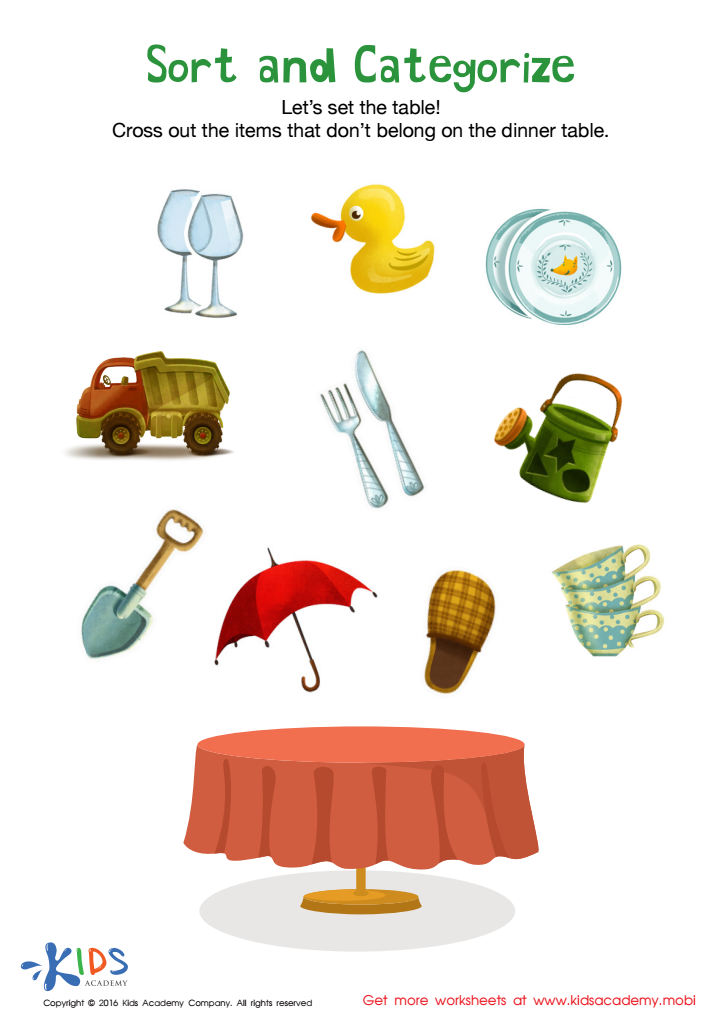Shape Recognition Normal Matching Worksheets for Ages 5-6
5 filtered results
-
From - To
Enhance your child's learning journey with our Shape Recognition Normal Matching Worksheets, specially designed for ages 5-6. These engaging worksheets foster early math skills by helping young learners identify and match a variety of shapes in a fun and interactive way. Each activity promotes critical thinking and boosts conceptual understanding, laying a strong foundation for future math success. Easy to print and tailor to any learning environment, these worksheets are perfect for home and classroom use. Start building your child's confidence in shape recognition today and watch them develop essential skills while having fun!
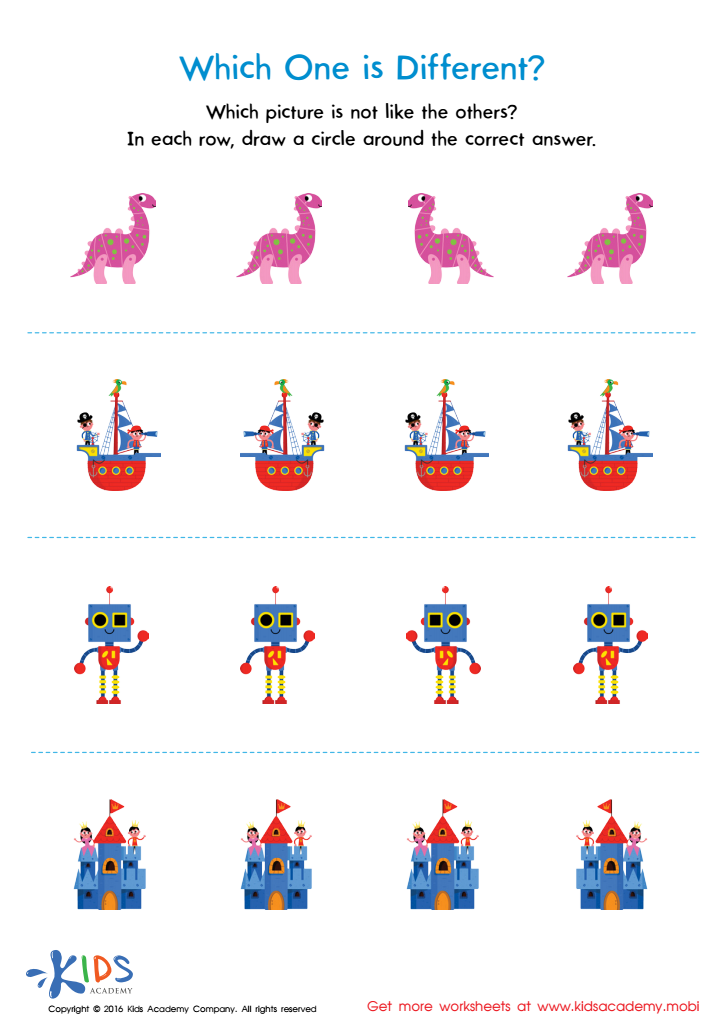

Which One Is Different Worksheet
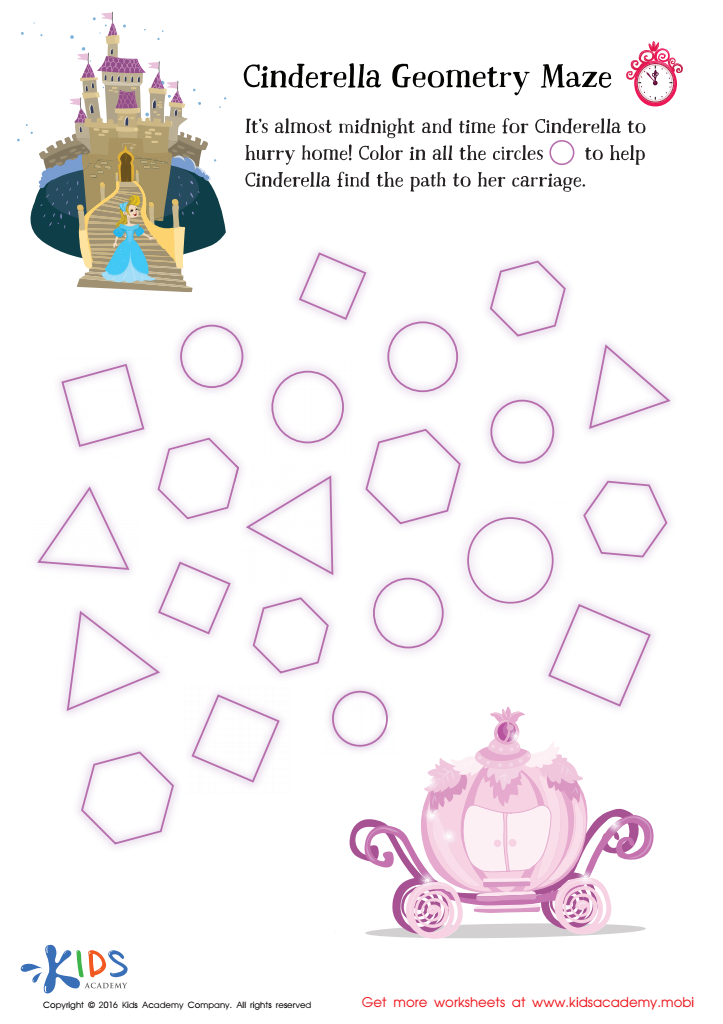

Cinderella Geometry Maze Worksheet
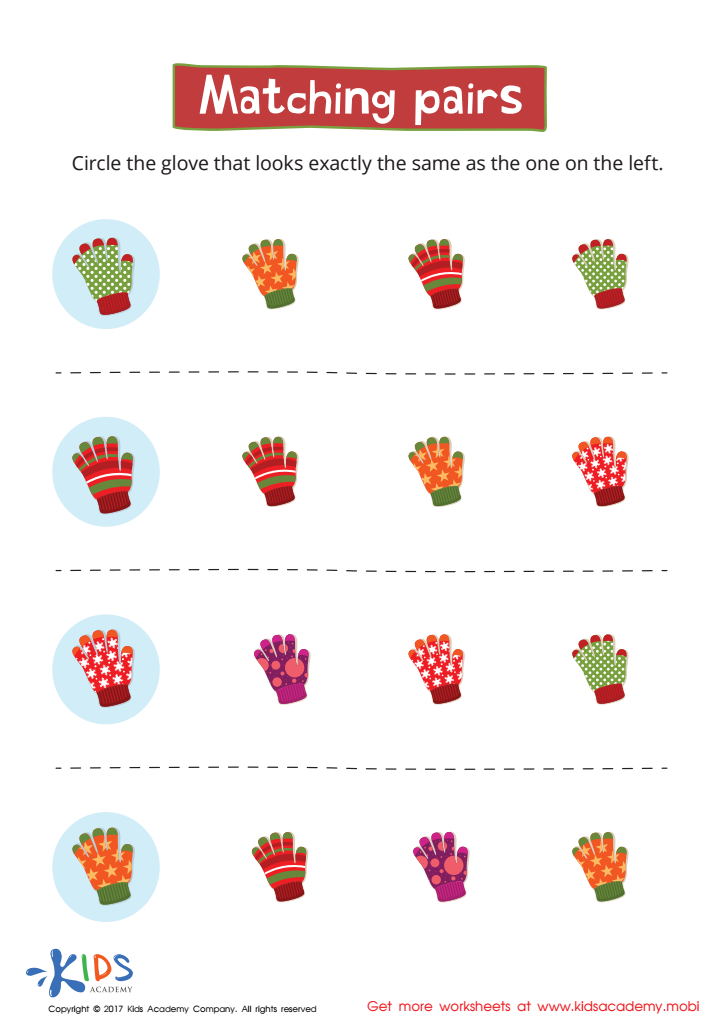

Matching: Matching Pairs Worksheet
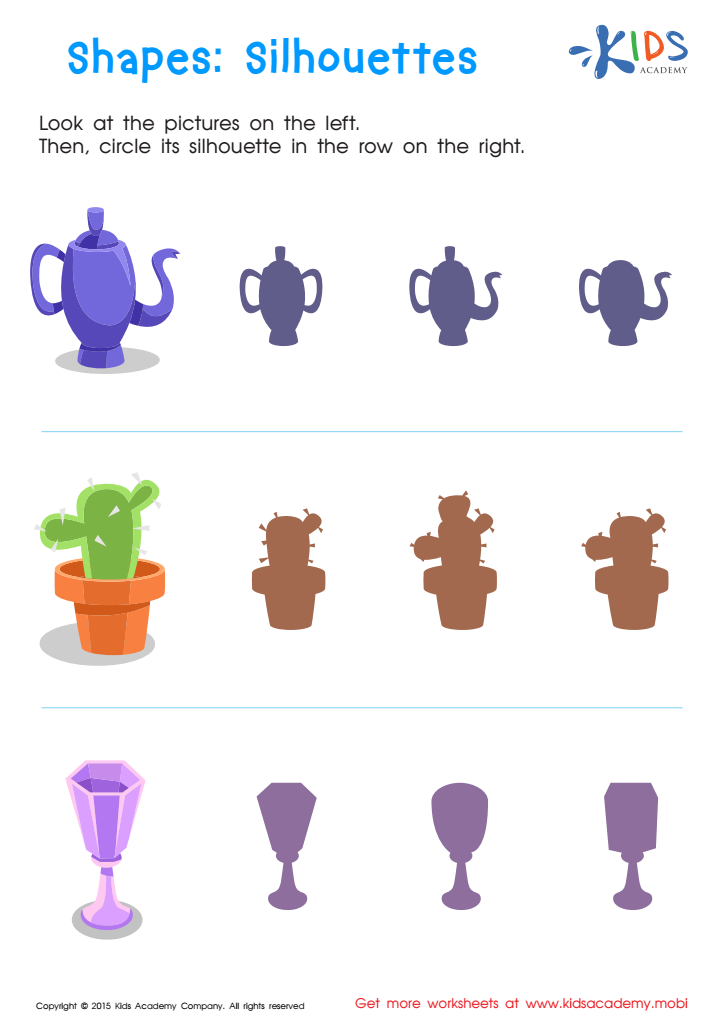

Silhouettes – Shapes Worksheet
Shape recognition and normal matching are fundamental skills for children aged 5-6, crucial for their cognitive and educational development. At this age, children are naturally curious about the world around them, and shape recognition enhances their ability to identify, categorize, and understand various objects. This skill serves as the foundation for more complex mathematical concepts such as geometry, spatial awareness, and later, algebraic thinking.
Teachers and parents should care about these skills because they are often precursors to success in academic settings. Mastering shape recognition helps improve a child’s problem-solving abilities and boosts creativity as they begin to think about how different shapes can combine to form new objects. Additionally, engaging children in activities centered around shapes encourages fine motor skills and hand-eye coordination through hands-on experiences, like drawing, cutting, or building.
Moreover, reinforcing these skills in early childhood fosters a love for learning. Children begin to develop critical thinking skills and confidence that will be essential throughout their educational journey. By prioritizing shape recognition and normal matching, parents and teachers lay the groundwork for children’s overall development, paving the way for a successful academic future.
 Assign to My Students
Assign to My Students
